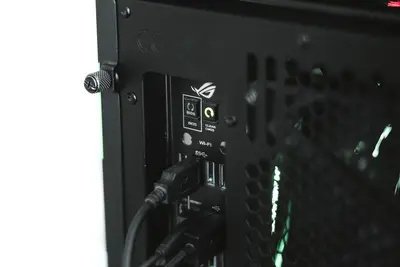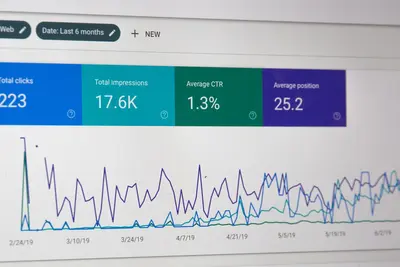File integrity monitoring (FIM) is like having a security guard for your files! 👮 It watches your important system files and alerts you when something changes unexpectedly. This helps detect intrusions, malware, or unauthorized modifications. Let’s set up a robust FIM system on Alpine Linux! 🚀
What is File Integrity Monitoring? 🤔
FIM works by:
- Creating checksums - Mathematical fingerprints of files
- Regular scanning - Checking if files have changed
- Alerting - Notifying you of unauthorized changes
- Logging - Keeping records of all modifications
Think of it as a tamper-evident seal for your digital files! 🔐
Installing AIDE (Advanced Intrusion Detection Environment) 📦
AIDE is a popular open-source FIM tool:
# Update package list
sudo apk update
# Install AIDE
sudo apk add aide
# Install additional tools
sudo apk add findutils coreutils
# Check installation
aide --versionInitial AIDE Configuration 🔧
Let’s configure AIDE for your system:
# Create AIDE configuration directory
sudo mkdir -p /etc/aide
# Basic AIDE configuration
sudo cat > /etc/aide/aide.conf << 'EOF'
# AIDE Configuration File
# Database locations
database=file:/var/lib/aide/aide.db
database_out=file:/var/lib/aide/aide.db.new
# Report settings
report_url=file:/var/log/aide/aide.log
report_url=stdout
# Rule definitions
NORMAL = p+u+g+s+m+c+md5+sha256
DIR = p+u+g
LOG = p+u+g+n+S
# Directories to monitor
/boot NORMAL
/bin NORMAL
/sbin NORMAL
/lib NORMAL
/usr/bin NORMAL
/usr/sbin NORMAL
/etc NORMAL
# Exclude volatile files
!/etc/mtab
!/etc/resolv.conf
!/var/log
!/var/cache
!/tmp
!/proc
!/sys
EOFInitializing the AIDE Database 📊
Create the initial baseline:
# Create necessary directories
sudo mkdir -p /var/lib/aide /var/log/aide
# Initialize AIDE database
sudo aide --init
# Move the new database to production
sudo mv /var/lib/aide/aide.db.new /var/lib/aide/aide.db
echo "✅ AIDE database initialized!"Running File Integrity Checks 🔍
Check for file changes:
# Run a check
sudo aide --check
# Check with verbose output
sudo aide --check --verbose
# Update database after legitimate changes
sudo aide --update
sudo mv /var/lib/aide/aide.db.new /var/lib/aide/aide.dbCreating Custom FIM Scripts 📝
Build your own monitoring tools:
# Simple file integrity checker
cat > ~/fim_check.sh << 'EOF'
#!/bin/sh
# Custom File Integrity Monitor
WATCH_DIR="/etc"
HASH_FILE="/var/lib/fim/hashes.db"
ALERT_LOG="/var/log/fim_alerts.log"
# Create directories
mkdir -p /var/lib/fim /var/log
# Function to generate hashes
generate_hashes() {
echo "Generating file hashes for $WATCH_DIR..."
find "$WATCH_DIR" -type f -exec sha256sum {} \; > "$HASH_FILE.new"
mv "$HASH_FILE.new" "$HASH_FILE"
echo "✅ Hash database created"
}
# Function to check integrity
check_integrity() {
echo "Checking file integrity..."
# Generate current hashes
find "$WATCH_DIR" -type f -exec sha256sum {} \; > "$HASH_FILE.current"
# Compare with baseline
if [ -f "$HASH_FILE" ]; then
diff "$HASH_FILE" "$HASH_FILE.current" > /tmp/fim_diff
if [ -s /tmp/fim_diff ]; then
echo "⚠️ Changes detected!"
echo "$(date): File changes detected" >> "$ALERT_LOG"
cat /tmp/fim_diff >> "$ALERT_LOG"
cat /tmp/fim_diff
else
echo "✅ No changes detected"
fi
else
echo "❌ No baseline found. Run with --init first"
fi
rm -f "$HASH_FILE.current" /tmp/fim_diff
}
# Main logic
case "$1" in
--init)
generate_hashes
;;
--check)
check_integrity
;;
*)
echo "Usage: $0 {--init|--check}"
exit 1
;;
esac
EOF
chmod +x ~/fim_check.shMonitoring Specific Files 🎯
Watch critical system files:
# Create targeted monitoring script
cat > ~/monitor_critical.sh << 'EOF'
#!/bin/sh
# Monitor Critical System Files
CRITICAL_FILES="
/etc/passwd
/etc/shadow
/etc/group
/etc/sudoers
/etc/ssh/sshd_config
/boot/config.txt
"
HASH_DIR="/var/lib/fim/critical"
mkdir -p "$HASH_DIR"
for file in $CRITICAL_FILES; do
if [ -f "$file" ]; then
# Generate hash
current_hash=$(sha256sum "$file" | cut -d' ' -f1)
hash_file="$HASH_DIR/$(echo $file | tr '/' '_').hash"
if [ -f "$hash_file" ]; then
stored_hash=$(cat "$hash_file")
if [ "$current_hash" != "$stored_hash" ]; then
echo "⚠️ ALERT: $file has been modified!"
echo "Old hash: $stored_hash"
echo "New hash: $current_hash"
fi
else
# Store initial hash
echo "$current_hash" > "$hash_file"
echo "📝 Stored hash for $file"
fi
fi
done
EOF
chmod +x ~/monitor_critical.shAutomated Monitoring with Cron 🕐
Set up automatic checks:
# Add to crontab
crontab -e
# Add these lines:
# Check every hour
0 * * * * /usr/bin/aide --check > /var/log/aide/aide-check.log 2>&1
# Check critical files every 30 minutes
*/30 * * * * /home/user/monitor_critical.sh >> /var/log/fim.log 2>&1
# Daily report
0 2 * * * /usr/bin/aide --check --report > /var/log/aide/daily-report.logReal-time File Monitoring 👁️
Use inotify for instant alerts:
# Install inotify-tools
sudo apk add inotify-tools
# Real-time monitoring script
cat > ~/realtime_monitor.sh << 'EOF'
#!/bin/sh
# Real-time File Monitor
WATCH_PATHS="/etc /bin /sbin"
LOG_FILE="/var/log/realtime_fim.log"
echo "Starting real-time file monitoring..."
echo "Watching: $WATCH_PATHS"
inotifywait -mr \
--timefmt '%Y-%m-%d %H:%M:%S' \
--format '%T %w%f %e' \
-e modify,attrib,move,create,delete \
$WATCH_PATHS |
while read date time file event; do
echo "$date $time: $event - $file" | tee -a "$LOG_FILE"
# Alert on critical changes
case "$file" in
*/passwd|*/shadow|*/sudoers)
echo "🚨 CRITICAL: Change detected in $file!" | tee -a "$LOG_FILE"
# Send alert (email, notification, etc.)
;;
esac
done
EOF
chmod +x ~/realtime_monitor.shCreating FIM Reports 📊
Generate detailed reports:
# Report generation script
cat > ~/fim_report.sh << 'EOF'
#!/bin/sh
# FIM Report Generator
REPORT_DIR="/var/log/fim/reports"
REPORT_FILE="$REPORT_DIR/fim_report_$(date +%Y%m%d).html"
mkdir -p "$REPORT_DIR"
cat > "$REPORT_FILE" << 'HTML'
<!DOCTYPE html>
<html>
<head>
<title>FIM Report</title>
<style>
body { font-family: Arial, sans-serif; margin: 20px; }
.alert { color: red; font-weight: bold; }
.safe { color: green; }
table { border-collapse: collapse; width: 100%; }
th, td { border: 1px solid #ddd; padding: 8px; text-align: left; }
th { background-color: #f2f2f2; }
</style>
</head>
<body>
<h1>File Integrity Monitoring Report</h1>
<p>Generated: $(date)</p>
<h2>Summary</h2>
<table>
<tr><th>Check Type</th><th>Status</th><th>Details</th></tr>
HTML
# Add AIDE results
if [ -f /var/log/aide/aide.log ]; then
if grep -q "changed" /var/log/aide/aide.log; then
echo '<tr><td>AIDE Check</td><td class="alert">Changes Detected</td><td>See detailed log</td></tr>' >> "$REPORT_FILE"
else
echo '<tr><td>AIDE Check</td><td class="safe">No Changes</td><td>System intact</td></tr>' >> "$REPORT_FILE"
fi
fi
echo '</table></body></html>' >> "$REPORT_FILE"
echo "Report generated: $REPORT_FILE"
EOF
chmod +x ~/fim_report.shIntegrating with System Logging 📝
Send FIM alerts to syslog:
# Configure rsyslog for FIM
sudo cat >> /etc/rsyslog.conf << 'EOF'
# FIM logging
:programname, isequal, "aide" /var/log/aide.log
:programname, isequal, "fim" /var/log/fim.log
& stop
EOF
# Restart rsyslog
sudo rc-service rsyslog restartAdvanced AIDE Rules 🔧
Create custom monitoring rules:
# Extended AIDE configuration
sudo cat >> /etc/aide/aide.conf << 'EOF'
# Custom rules
SENSITIVE = p+i+n+u+g+s+m+c+md5+sha512+rmd160+tiger
LOGS = p+n+u+g+S
CONFIGS = p+u+g+m+c+md5+sha256
# Web server files
/var/www NORMAL
!/var/www/*/cache
!/var/www/*/tmp
# Database files
/var/lib/mysql SENSITIVE
/var/lib/postgresql SENSITIVE
# Configuration files
/etc/nginx CONFIGS
/etc/apache2 CONFIGS
EOFTroubleshooting FIM Issues 🔧
Database Corruption
# Rebuild AIDE database
sudo rm -f /var/lib/aide/aide.db
sudo aide --init
sudo mv /var/lib/aide/aide.db.new /var/lib/aide/aide.dbPerformance Issues
# Optimize AIDE checks
# Use less intensive hash algorithms for non-critical files
# Exclude frequently changing directoriesFIM Best Practices 📌
- Regular baseline updates - Update after legitimate changes
- Protect FIM databases - Store securely, possibly offline
- Monitor FIM tools - Ensure monitoring tools aren’t compromised
- Test alerts - Verify notification systems work
- Document changes - Keep records of authorized modifications
Quick Reference 📝
# Initialize AIDE
sudo aide --init
# Run check
sudo aide --check
# Update database
sudo aide --update
# Check specific directory
sudo aide --check --limit /etc
# Verbose output
sudo aide --check -V 255Conclusion 🎯
You’ve successfully set up file integrity monitoring on Alpine Linux! With AIDE configured, custom scripts ready, and automated monitoring in place, you’ll know immediately when critical files change. This adds a powerful layer of security to your system. Stay vigilant and keep your files protected! 🛡️✨




